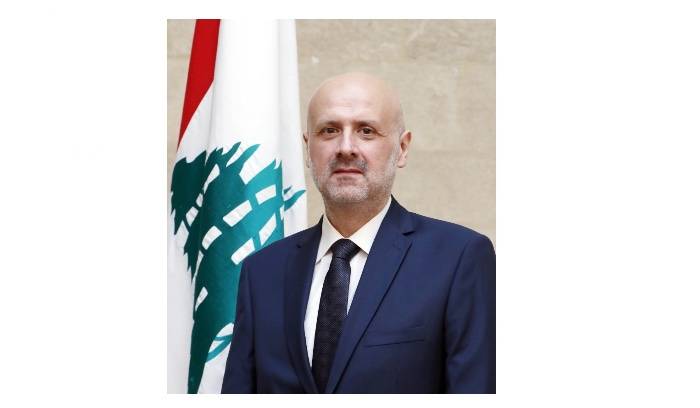
Interior Minister Bassam Mawlawi. (Credit: NNA)
BEIRUT — Interior Minister Bassam Mawlawi said Thursday that he has instructed security forces to inform the Assaha Hotel in Beirut’s Burj al-Barajneh area to “immediately cancel” hosting two events that support Bahrain opposition groups. Mawlawi said that no permission had been sought to host the events.
Here’s what we know:
• In a statement, Mawlawi said that the two events titled “The political rights of the Bahraini revolution” and “Bahrain in oppression and darkness,” respectively, and scheduled for Friday and Monday, “would offend the authorities of Bahrain and the Gulf countries” if they went ahead.
• Mawlawi also said that his decision is in line with “the Kuwaiti initiative, under which the country pledged to abide by all measures that prevent offending, verbally or through action, brotherly Arab countries.”
• Last month, Kuwaiti Foreign Minister Ahmad Nasser al-Mohammad Al-Sabah, handed Lebanese authorities proposals to ease the diplomatic crisis between Lebanon and some Gulf countries that has persisted since the broadcasting of comments by then-Information Minister George Kurdahi in October that criticized Saudi involvement in the war in Yemen. The proposals include “preventing verbal and active offense against Arab countries and particularly Gulf countries and abiding by the policy of self distancing.”
• Lebanon responded to the Kuwaiti proposals saying that it would “not be a launchpad for activities that violate Arab countries.”
• The interior minister added that after discussing the scheduled events with Prime Minister Najib Mikati, he ordered security forces to inform the hotel to “immediately cancel” the events. Mawlawi added that he has “taken all necessary investigative measures to gather information about the organizers of the events.”
• In December, al-Wifaq, the main Bahraini opposition group, held a press conference in the southern suburbs of Beirut, a Hezbollah stronghold, to release its annual report on human rights violations in Bahrain, a move that angered the Gulf Arab monarchies. The Lebanese government at the time opened an investigation into the matter and ordered the deportation of all non-Lebanese members of al-Wifaq.